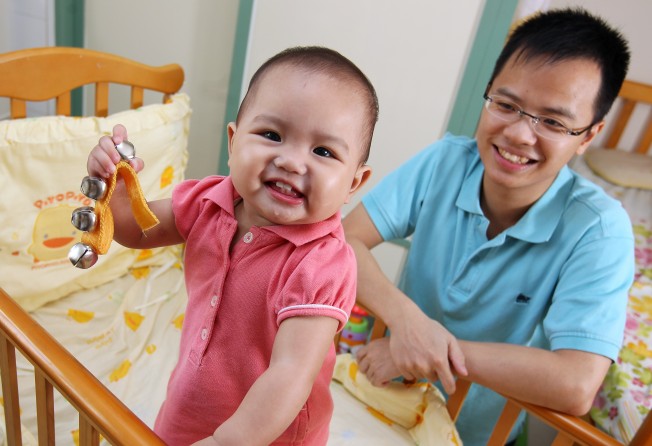Paternity leave law cries out for change
- Society and the economy benefit when fathers help in the raising of newborns and, in a city where they are mandated only five days off, a cultural shift and further education are needed

The benefits of paternity leave are well-documented. When fathers equally share the duties of rearing newborns with mothers, family bonds are strengthened and all involved are healthier and happier.
That, in turn, flows through to society and the economy, bridging gender and pay gaps and for nations with fast ageing populations, providing the conditions to boost flagging birth rates. But laws mandating time off work and incentives are not enough; there also has to be wide societal and cultural acceptance.
South Korea and Japan make the case that legislation is not enough. South Koreans have among the best paid family leave in the world, offering up to 62.9 weeks per child for women and 52.6 weeks for men. But just 13 per cent of fathers take up the offer, stigma being cited as the main reason.
In Japan, where up to a year off work can be taken for paternity leave, the take-up rate is just 6 per cent. Research points to the reason largely being the nations’ traditional Confucian culture, which expects men to earn for their family and women to stay at home and take care of their husband and children.
But culture is not alone in determining child-rearing practices. While governments usually have no problem setting an example and large companies possess the financial resources to follow suit, small and medium-sized firms often do not warm to such policies.
An imbalance in what guidelines and laws mandate and what a company can afford can put jobs at risk. South Korean labour ministry data shows that the retention rate for paternity leave among employees at major companies was 87.4 per cent, while for smaller firms it was just 69.5 per cent.
Elsewhere in Asia, paternity leave among countries varies according to duration, funding sources and eligibility. In Hong Kong, mandatory paternity leave was raised last year from three to five days, while in Singapore, fathers whose newborns are citizens of the city state are eligible for 14 days and their wives can share their 16-week maternity leave with them for up to an additional four weeks. But worryingly low birth rates show wider policies are needed. Changes in the law also need to be accompanied by cultural shifts and education.